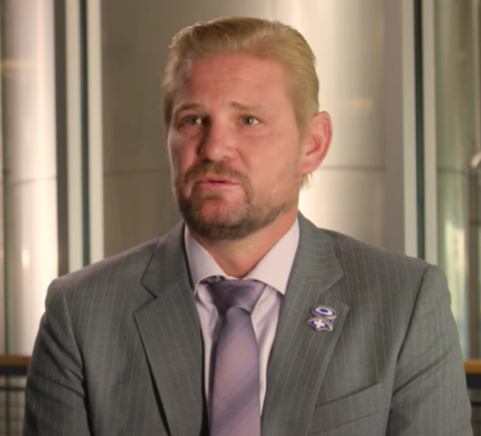Veteran Jonathan Warren felt able to cope with the physical symptoms of his brain injury, like headaches, but he thought the emotional fall out from his PTSD was the real problem. He soon realized that a brain injury can lead to those intangible issues as well, such as impulse control and depression.
Learn more about some of the treatments available for those recovering from brain injury and PTSD using our Treatment Hub.
Watch more videos from Jonathan Warren.
PTSD was my biggest frustration. Physical pain is no problem. I get headaches and migraines, I can deal with that. I can identify it and target it. Emotional pain is more abstract and you can’t put a Band Aid on it, you can’t fix it necessarily with a cast or something. So that was my driving factor. But you know when you look at PTSD versus TBI what we’re finding now with quantitative EEG and being able to look deeper into the brain if your brain has that traumatic injury and the brain cells aren’t working the way they’re supposed to in certain areas you’re going to feel anxiety, you’re going to have difficulty focusing, you’re going to have problems with impulse control. You have all these functions that are impacted that just contribute even more to the PTSD, if you will, because of the TBI. So they’re kind of inseparable in my mind where you have to address both of them if you want to see the healing happen. This video was produced by BrainLine thanks to a generous donation from the Infinite Hero Foundation.
This video was produced by BrainLine thanks to generous support from the Infinite Hero Foundation.
About the author: Jonathan Warren
Jonathan Warren is a veteran and Military Director of The Brain Injury Center in Newport Beach, CA.

